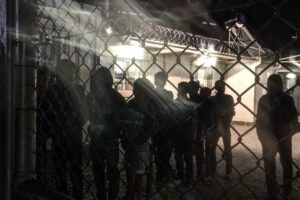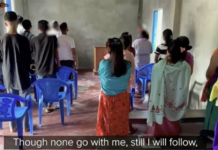GREECE (ANS) — In what is seen as a huge victory for children’s rights, the Greek government is ending the long-standing practice of detaining unaccompanied migrant children in jail cells.
The announcement was made on November 18 by the Migration and Asylum Minister of Greece, Notis Mitarakis. As of that date no unaccompanied migrant children remained in police custody, he said.
Human Rights Watch (HRW) https://www.hrw.org/news published its first report on the consequences of the “protective custody” regime—as this practice is called in Greece—in 2008.

Since then, HRW has interviewed dozens of unaccompanied children who found themselves detained by Greek police for weeks and in some cases months in small, overcrowded and unsanitary police station cells.
The author of this story, Michael Ireland, is a self-supported media missionary with ANS. Click here to support him as a missionary journalist.
HRW said: “In some cases, they were held with unrelated adults – often criminal detainees – despite the increased risk of abuse and sexual violence. In December 2016, we published yet another report, renewing our call to Greek authorities to end this practice. International law prohibits any form of migration detention for children.”
HRW reported that since last April, many people joined Human Rights Watch’s #FreeTheKids campaign, calling on Greece’s Prime Minister Kyriakos Mitsotakis to immediately release unaccompanied migrant children who were in detention and transfer them to safe and open child-friendly facilities.
HRW said: “Greece’s pledge to end the practice is an important move to protect children and resonates deeply among those who have worked tirelessly to defend the rights of these kids for years, and took part in this campaign.”
According to HRW, in order to fulfill its pledge, “Greece should act quickly to repeal the legal provisions that allow children to be detained in so-called protective custody. Greece should also increase its shelter capacity, find alternatives to detention, and establish a functional and comprehensive foster family system, which would benefit Greek children as well.”
HRW added: “But the EU also needs to help. The European Commission should financially support Greece in its efforts to respect migrant children’s rights. Other EU member states should speed up family reunification for children with relatives in their territories and should relocate unaccompanied asylum-seeking children – even if they lack family ties.”
The author of this story, Michael Ireland, is a self-supported media missionary with ANS. Click here to support him as a missionary journalist.






